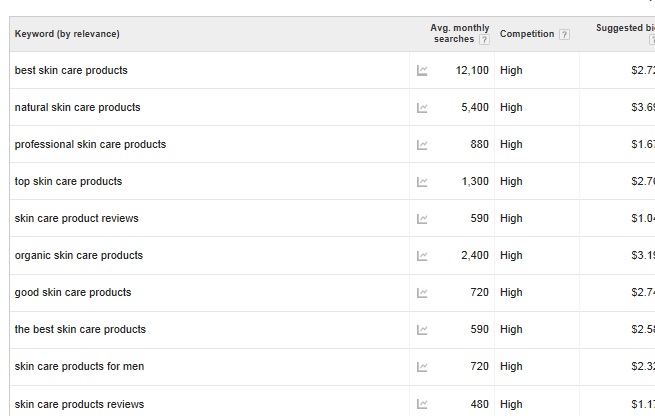Your cart is currently empty!

Paid or Organic Search, by Keywords
Michio Kaku wrote that people working toward artificial intelligence, such as a computer program that can handle human language the way humans do, are like people building a tower to the moon. They get all excited about how much taller their tower is becoming, while ignoring the fact that their end goal is as far away as ever.
Even so, Google’s search algorithm is getting steadily closer to the goal of being able to identify the best content to answer a query, and it has generally gotten past the stage of focusing on individual keywords. We should still be aware of the terms people use to search for our goods and services, but search engines no longer rely on the use of some particular keyword for organic search.
For paid search, however, we still choose and specify keywords.
As you’re brainstorming keywords for your paid search campaign, whether using the Google Ads Keyword Planner tool or just batting around ideas with your team, you’ll probably come up with a long list. Some of the terms will be good choices for your CPC campaign. Others will be better choices for targeting for organic search.
How can you decide?
What’s your landing page like?
In the example shown above, the Google Keyword Planner tool has recommended “skin care for men” as a good keyword for the company in question. However, if we have no single landing page devoted to skin care for men, we shouldn’t choose that keyword. If we send people from an ad for men’s skin care to a page that has general products or mostly products for women, we’ll get a lower quality score, we’ll pay more, and we’re likely to lose customers who will feel that they’ve been brought to a page that doesn’t give them what they want. Instead of immediately going with this keyword for PPC, we should develop a great landing page for men’s skin care, and then begin advertising.
What’s your competition like?
In the example above, we can see that “professional skin care products” has relatively low volume and high competition. However, organic search for this term turns up plenty of smaller companies and no one owner of the page. If we have good professional skin care products, we can probably compete more economically by writing great blog posts and articles for professionals and sharing them in social media, including LinkedIn and forums like SkinCareProfessionals.com which are targeted specifically toward estheticians.
How strongly targeted are the terms?
Unless we have very deep pockets, we don’t want to go with the most general terms. We can see that “natural skin care products” has a suggested bid of over $3.00. If we’re selling a $20.00 item, get an average basket size of $36.00, and see a typical conversion rate of 4% or so, we can’t expect great ROI with that very general term, at least in the short run.
We’ll get better results by narrowing our keywords for paid search. Natural skin care products for men, for black consumers, or for aging skin would be possible ways to go. We can also choose our specific ingredients, specific products, or specific features we know our customers want. At the same time, we can work for strong organic results for more general terms by making great web pages for many related long-tail searches.
Watch the data
These kinds of questions allow us to create a sensible list of keywords for our paid search campaigns, and to recognize terms that will work better for organic search.
We’ll also watch the performance of the keywords we choose for paid search, and toss the poor performers — but also reconsider them for organic search.
Dividing that list of keywords into the ones that will perform well in paid search and those that should be worked on in our organic SEO can make a big difference in the ROI of both methods.
by
Tags:

Leave a Reply